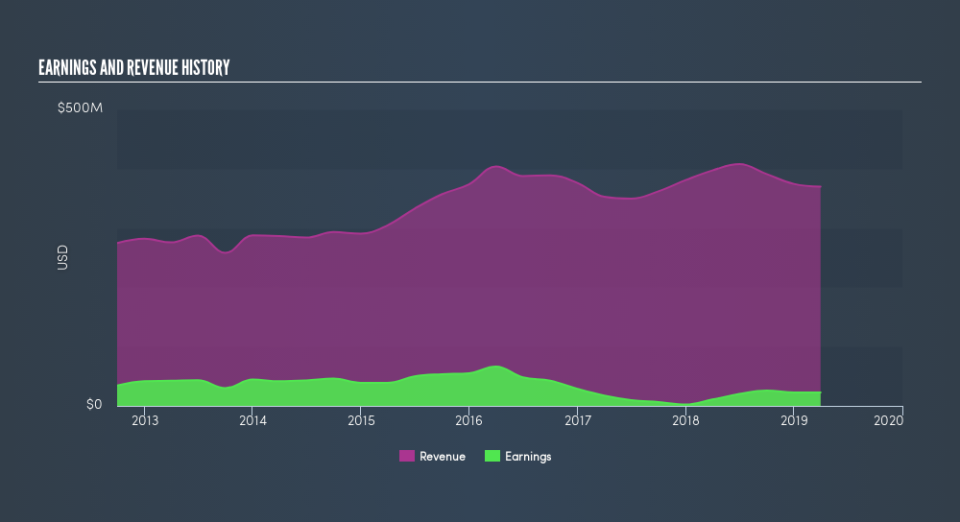What Kind Of Share Price Volatility Should You Expect For IMAX Corporation (NYSE:IMAX)?

Want to participate in a short research study? Help shape the future of investing tools and you could win a $250 gift card!
If you own shares in IMAX Corporation (NYSE:IMAX) then it's worth thinking about how it contributes to the volatility of your portfolio, overall. In finance, Beta is a measure of volatility. Modern finance theory considers volatility to be a measure of risk, and there are two main types of price volatility. First, we have company specific volatility, which is the price gyrations of an individual stock. Holding at least 8 stocks can reduce this kind of risk across a portfolio. The second type is the broader market volatility, which you cannot diversify away, since it arises from macroeconomic factors which directly affects all the stocks on the market.
Some stocks are more sensitive to general market forces than others. Some investors use beta as a measure of how much a certain stock is impacted by market risk (volatility). While we should keep in mind that Warren Buffett has cautioned that 'Volatility is far from synonymous with risk', beta is still a useful factor to consider. To make good use of it you must first know that the beta of the overall market is one. A stock with a beta below one is either less volatile than the market, or more volatile but not corellated with the overall market. In comparison a stock with a beta of over one tends to be move in a similar direction to the market in the long term, but with greater changes in price.
See our latest analysis for IMAX
What we can learn from IMAX's beta value
As it happens, IMAX has a five year beta of 0.99. This is fairly close to 1, so the stock has historically shown a somewhat similar level of volatility as the market. While history does not always repeat, this may indicate that the stock price will continue to be exposed to market risk, albeit not overly so. Beta is worth considering, but it's also important to consider whether IMAX is growing earnings and revenue. You can take a look for yourself, below.
Does IMAX's size influence the expected beta?
With a market capitalisation of US$1.2b, IMAX is a small cap stock. However, it is big enough to catch the attention of professional investors. It takes less capital to move the share price of small companies, and they are also more impacted by company specific events, so it's a bit of a surprise that the beta is so close to the overall market.
What this means for you:
IMAX has a beta value quite close to that of the overall market. That doesn't tell us much on its own, so it is probably worth considering whether the company is growing, if you're looking for stocks that will go up more than the overall market. This article aims to educate investors about beta values, but it's well worth looking at important company-specific fundamentals such as IMAX’s financial health and performance track record. I urge you to continue your research by taking a look at the following:
Future Outlook: What are well-informed industry analysts predicting for IMAX’s future growth? Take a look at our free research report of analyst consensus for IMAX’s outlook.
Past Track Record: Has IMAX been consistently performing well irrespective of the ups and downs in the market? Go into more detail in the past performance analysis and take a look at the free visual representations of IMAX's historicals for more clarity.
Other Interesting Stocks: It's worth checking to see how IMAX measures up against other companies on valuation. You could start with this free list of prospective options.
We aim to bring you long-term focused research analysis driven by fundamental data. Note that our analysis may not factor in the latest price-sensitive company announcements or qualitative material.
If you spot an error that warrants correction, please contact the editor at editorial-team@simplywallst.com. This article by Simply Wall St is general in nature. It does not constitute a recommendation to buy or sell any stock, and does not take account of your objectives, or your financial situation. Simply Wall St has no position in the stocks mentioned. Thank you for reading.

 Yahoo Finance
Yahoo Finance 
